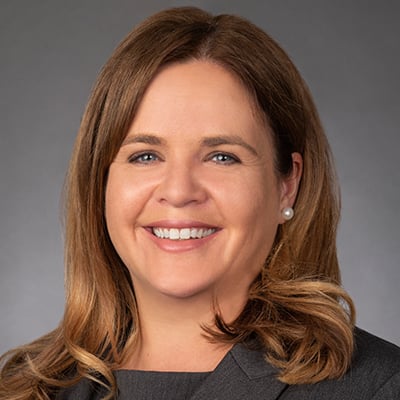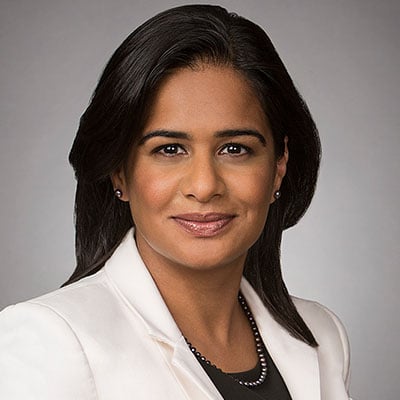FinCEN Issues Final Rule Relating to New Beneficial Ownership Reporting Obligations for Private Fund Managers, Private Funds and Portfolio Investments
On September 29, 2022, the Financial Crimes Enforcement Network (“FinCEN”), a U.S. Treasury unit tasked with safeguarding the financial system from illicit uses (e.g., money laundering), issued a final rule that will implement the beneficial ownership information (“BOI”) reporting provisions of the Corporate Transparency Act of 2020 (the “CTA”).1 This rule will be effective January 1, 2024, but entities in existence as of that date will have an additional year to make required filings.
The CTA will require many U.S. domestic and certain non-U.S. legal entities to disclose information about their Beneficial Owners to FinCEN. Under the rule, “Beneficial Owners” are natural persons who directly or indirectly own or control at least 25% of an entity2 or otherwise exercise “substantial control.” 3 This information will be maintained in a confidential database that may only be accessed by law enforcement agencies and, with the reporting entity’s consent, certain financial institutions seeking to comply with customer due diligence requirements. The rule clarifies which entities will be required to file a BOI report, the information that must be reported and when such reports are due.
Private fund managers should be aware that the BOI reporting requirements may apply to certain entities within their managed private fund structures, including portfolio investments. Managers should note:
- Many U.S. and certain non-U.S. entities will be required to report Beneficial Owners unless they fall under one or more exemptions from reporting.
- Entities exempt from reporting include any SEC-registered investment adviser, venture capital adviser filing with the SEC as an exempt reporting adviser (“VC Advisers”) and any private fund managed by any such adviser that qualifies as a “pooled investment vehicle,” as described below. A portfolio company may be exempt from reporting if its operations reach certain revenue and employee headcount thresholds.
- Entities likely to face reporting requirements include private funds managed by a mid-size private fund exempt reporting adviser, smaller or state-regulated adviser, offshore private fund registered to do business in one or more U.S. states, and certain under-the-fund entities or portfolio interests (such as SPVs, pooling arrangements and small portfolio companies).
U.S. Domestic and Non-U.S. Entities Are Subject to Reporting
Both U.S. domestic legal entities and certain non-U.S. entities may face BOI reporting requirements. Under the rule, domestic reporting entities include corporations, limited liability corporations (“LLCs”), or any other entity (e.g., limited partnership) created by filing a document with a secretary of state or analogous office. Non-U.S. reporting entities include corporations, LLCs, or other entities formed under the laws of a foreign jurisdiction that are registered to do business in any U.S. state or tribal jurisdiction.
Many Private Fund Managers, Private Funds and Portfolio Investments Will Be Exempt from Reporting
The CTA exempts 23 types of entities from the Beneficial Ownership reporting requirements.4 Several of these exemptions will provide relief to private fund managers and private funds. However, each entity must be looked at on a standalone basis for purposes of determining whether an exemption applies.
Private fund managers will be exempt if: (1) the entity is an SEC-registered adviser or (2) a venture capital exempt reporting adviser. A relying adviser of an SEC-registered adviser would appear to be covered by an exemption but FinCEN declined to clarify whether affiliated general partner SPVs of (1) or (2) would receive an exemption in all cases, noting only that such entities are only exempt if they satisfy the “subsidiary exemption” described in the CTA (see discussion below).5
Second, investment funds affiliated with exempt private fund managers will likely be exempt from BOI reporting, provided they qualify as “pooled investment vehicles” (“PIVs”).6 The CTA identifies two kinds of exempt PIVs:
- Any entity that qualifies as an investment company under Section 3(a) of the Investment Company Act of 1940 (“ICA”) (e.g., registered funds or funds investing primarily in securities but relying on other exemptions such as ICA Section 3(c)(5) used by certain real estate funds); or
- Any entity (e.g. a private fund) that (i) relies on a 3(c)(1) or 3(c)(7) exemption from the ICA and (ii) is (or will be) identified by its legal name on an investment adviser’s Form ADV.7
Third, a “large operating company” will be exempt if it:
- maintains an operating presence in the U.S., and
- has at least 20 full-time employees in the U.S., and
- has filed a U.S. tax return in the previous year reporting over $5 million in gross receipts.
This provision will excuse many portfolio companies and operating companies from any new BOI reporting requirements. That said, because the exemption must be considered separately for each U.S.-domiciled entity in an ownership chain, holding structures that sit “above” a large operating company may not themselves be able to use an exemption.
Fourth, non-U.S. entities including private fund managers, private funds, and portfolio investments or portfolio companies are, in effect, exempt unless any such entity has registered to do business in a U.S. state.8
Finally, subject to a few important exceptions discussed below, subsidiaries of any exempted entity are also exempt from the reporting requirements. This “subsidiary exemption” removes from the BOI reporting obligations entities controlled or wholly owned, directly or indirectly, by an enumerated list of owners who are themselves exempt from BOI reporting. Notably, subsidiaries of PIVs are not exempt from reporting requirements under the subsidiary exemption, but other exemptions may apply.
Private Funds and Managers Should Be Aware of Certain Limits to Exemptions
Although many private funds will be exempt from reporting, private fund managers should be aware of entities within their fund structures that will still be required to disclose Beneficial Owners under the rule.
First, private funds managed by advisers other than SEC-registered or VC exempt advisers will be required to report Beneficial Owners.
Second, the pooled investment vehicle exemption available to SEC-registered or venture capital funds is not available to non-U.S. private funds that are registered to do business in the U.S. Such non-U.S. PIVs will therefore be required to file reports with FinCEN, but they will only be required to make a narrower disclosure: foreign PIVs need only identify “an individual that exercises substantial control over the pooled investment vehicle,” rather than Beneficial Owners in the fund.9
Third, the subsidiary exemption may not be available to the controlled or wholly owned subsidiaries of exempt PIVs, such as portfolio companies, tax blockers and equity aggregator vehicles that sit under an investment fund. While most wholly owned subsidiaries of exempted companies may rely on their corporate parent’s exemption from BOI reporting, subsidiaries of PIVs are expressly excluded from this protection. The apparent result is that even if a private fund entity is exempt under the PIV exemption, its subsidiaries will still be regarded as reporting companies unless they qualify for a separate exemption. However, if such a subsidiary is required to report, it will only be required to identify the exempt entities that have an ownership interest (not the Beneficial Owners of those exempt entities).
FinCEN has not elaborated on the rationale for this treatment of PIV subsidiaries, but it could affect a considerable number of investment funds. Certain special purpose vehicles and holding companies used by private funds to facilitate acquisitions, optimize tax treatment and/or aggregate co-investment or management equity may now be required to report their ownership by a fund entity when such entity itself qualifies as a PIV. Likewise, portfolio companies held by PIVs are excluded from the subsidiary exemption and will have to disclose their ownership unless they qualify under another exemption. For example, as noted above, many portfolio companies are likely to be exempt in their own right as “large operating companies” (defined as having 20 U.S. employees and over $5 million in gross receipts).
A table summary of types of entities and BOI filing requirements follows.
Reporting Entities Must Disclose “Beneficial Owners” and “Company Applicants”
Domestic and foreign entities that do not benefit from a reporting exemption will be required to file reports with FinCEN that identify:
- the entity’s Beneficial Owners, and
- individuals who have filed applications with government authorities to form the entity or register it to do business (“company applicants”).
As noted above, “Beneficial Owners” include any natural person who (1) exercises substantial control over a reporting entity, or (2) owns or controls at least 25% of the ownership interests of a reporting entity. The rule sets out a list of actions demonstrating “substantial control” of a reporting entity and captures anyone who can make significant decisions on behalf of the entity. This includes, for example, “senior officers” of a reporting entity.
“Company applicants” are the individuals who file the documents forming the entity (for domestic entities) or the individuals who file the document that first registers the entity to transact business in the U.S. (for non-U.S. entities). In either case, company applicants include anyone directing or controlling the filing of the relevant document. However, entities created or registered before the rule becomes effective on January 1, 2024, will not be required to report information about their company applicants.
For each Beneficial Owner or company applicant covered by the regulation, the BOI report must disclose:
- name,
- date of birth,
- residential or business street address, and
- a unique identifying number from an identification document, such as a passport, or a unique FinCEN identifier.
Looking Ahead
The final rule will become effective on January 1, 2024. FinCEN is required to engage in two additional rulemakings to (1) establish rules regulating access to BOI and (2) revise FinCEN’s CDD rule to ensure consistency with the final rule regarding BOI. Companies in existence prior to the rule’s effective date and now subject to the new reporting requirements will have until one year after the effective date (until January 1, 2025) to file initial BOI reports. Reporting entities created after the final rule’s effective date will have to file their initial reports within 30 days after their formation (for U.S. domestic entities) or their initial registration to do business in the U.S. (for non-U.S. entities). Reports will be filed with FinCEN in a form and manner to be set forth in subsequent rulemaking.
If you have any questions about the matters addressed in this Kirkland AIM, please contact the following Kirkland attorneys or your regular Kirkland contact.
Regulatory: Norm Champ, Scott Moehrke, Diane Blizzard, Michael Chu, Matthew Cohen, Marian Fowler, Melissa Gainor, Phil Giglio, Nicholas Hemmingsen, Daniel Kahl, Alpa Patel, Eric Perelman, Noah Qiao, John Reinert, Nabil Sabki, Jaime Schechter, Christopher Scully, Reed Schuster, Ryan Swan, Josh Westerholm, Jina Yun
Government, Regulatory & Internal Investigations: Nick Niles, Meghan Dolan, Victor Hollenberg, Zach Heater, Asheesh Goel, Zachary Brez, Kim Nemirow
Appendix
Summary of Beneficial Ownership Reporting Requirements
| Type of Entity | U.S. Domestic Entity | Non-U.S. Entity Registered to Do Business in U.S.10 |
| (1) Holding entities above advisers |
BOI filer unless large operating company11 |
BOI filer unless large operating company11 |
| (2) Private fund managers: |
||
| SEC-registered advisers |
Exempt |
Exempt |
| VC SEC-ERA |
Exempt |
Exempt |
| Relying Adviser |
Likely exempt |
Likely exempt |
| GP SPV of SEC-registered adviser |
Likely exempt |
Likely exempt |
| Other investment adviser |
BOI filer |
BOI filer |
| (3) Registered funds or non-private funds exempt from ICA registration12 |
Exempt |
BOI filer (as to control person only) |
| (4) Private funds (PIVs) advised by: |
||
| SEC-registered advisers |
Exempt |
Exempt |
| VC SEC-ERA |
Exempt |
Exempt |
| Relying adviser |
Likely exempt |
Likely exempt |
| Other investment advisers |
BOI filer |
BOI filer |
| Underneath-the-fund SPVs |
If meet PIV definition, same as category (4), otherwise BOI filer |
If meet PIV definition, same as category (4), otherwise BOI filer |
| Portfolio investments |
BOI filer unless large operating company |
BOI filer unless large operating company |
1. See Rule, Beneficial Ownership Information Reporting Requirements, 87 Fed. Reg. 59,498 (September 30, 2022) and Corporate Transparency Act, enacted on January 1, 2021 as part of the National Defense Authorization Act for Fiscal Year 2021. See Title LXIV, Pub. L. No. 116-283 (Jan. 1, 2021).
FinCEN plans to pursue two additional rulemakings to implement the CTA. The first will establish important rules for access to and disclosure of BOI information, including data security protocols. The second will revise the Customer Due Diligence (CDD) Rule applicable to financial institutions since May 2018 in order to align its “control person” requirements with BOI requirements. ↩
2. A natural person must own 25% of the total outstanding “ownership interests” of a reporting entity. “Ownership interests” are defined to include any equity, stock, or other similar instrument establishing ownership without regard to whether it confers voting power or voting rights; any capital or profit interest in an entity; or any other instrument or arrangement used to establish ownership.↩
3. The rule defines a number of relationships and circumstances (formal and informal) that may establish “substantial control.” In short, senior officers, those who control a majority of the board and those who direct or have substantial influence over important business decisions may be considered to have substantial control for purposes of the reporting requirement.↩
4. For the complete list of exempted entities, see 31 U.S.C. § 5336(a)(11)(B)(i)-(xxiii). Note that while FinCEN has the statutory authority to expand the list of exempted entities, it declined to do so in this rulemaking. See Proposed Rule, Beneficial Ownership Information Reporting Requirements, 86 Fed. Reg. 69,920, 69,940-41 (December 8, 2021).↩
5. See 87 Fed. Reg. at 59,537-38. Most general partnerships are unlikely to be deemed reporting entities under the final rule. FinCEN has taken the position that general partnerships are generally not created through the filing of documents with a secretary of state or analogous office, nor is any registration for a business license or similar permit an act “creating” the entity.↩
6. Because most sponsors list their GPs on a Form ADV, those GPs are deemed “registered” with the SEC. Although FinCEN did not provide guidance on whether GPs so-identified are able to make use of the exemption from BOI reporting, we think the better reading of the rule is that they are exempt. Ownership vehicles that sit above the GPs may not enjoy an exemption, however.↩
7. Recognizing that the timeframe between the creation of a PIV and its identification on an investment adviser’s Form ADV can exceed the Beneficial Ownership disclosure deadline that applies to new entities, FinCEN’s final rule expressly exempts PIVs that will be identified on an investment adviser’s next annual updating amendment form ADV.↩
8. In our experience, most non-U.S. domiciled funds are not likely to register to do business in any U.S. state; however, some sponsors may opt to so register non-U.S. funds, and will therefore need to consider BOI filing obligations to identify a control person.↩
9. Where multiple individuals exercise substantial control over the foreign PIV, the person with the “greatest authority over the strategic management of the entity” must be identified in its BOI filing with FinCEN.↩
10. For non-U.S. entities not registered to do business in the U.S., no BOI filings are required.↩
11. Or another exemption applies.↩
12. E.g., Section 3(c)(5) real estate funds.↩






















